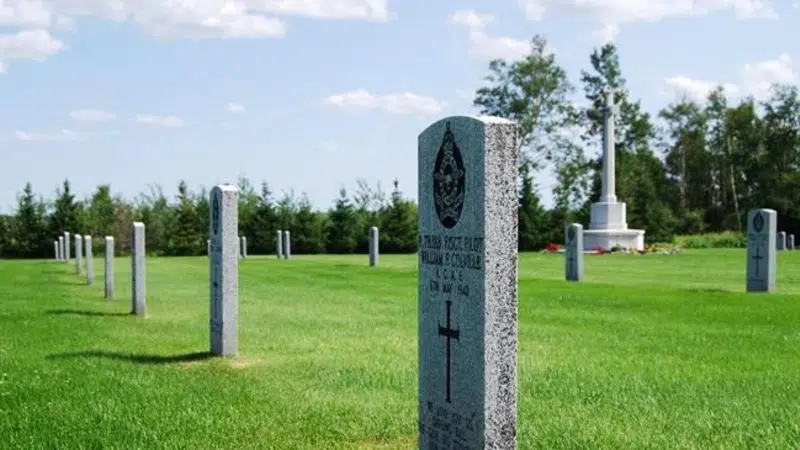
Remembrance Way to honour lives lost in Gander during peacekeeping, wartime
ST. JOHN’S, N.L. — A stretch of the Trans-Canada Highway just east of Gander, N.L., passes two sites that speak to the town’s outsized role in the history of war, peacekeeping and their accompanying tragedies.
The Silent Witness memorial marks the spot where 248 U.S. troops and eight crew members were killed in the Arrow Air crash of Dec. 12, 1985 — the deadliest crash on Canadian soil — as they headed home to Fort Campbell, Ky., from a peacekeeping mission in the Sinai Peninsula.
Just down the road, the Commonwealth War Graves Commission Cemetery holds the graves of 100 airmen from Canada, Britain and Australia who died during the Second World War, when Gander was a prominent staging ground for aircraft travelling between North America and Great Britain. Most of the dead were killed in aircraft that crashed in the area during the war.
Families of the fallen have made the pilgrimage to Gander over the years, and a ceremony on Remembrance Day will acknowledge those lost lives and others by renaming the two-kilometre section of road “Remembrance Way.”


